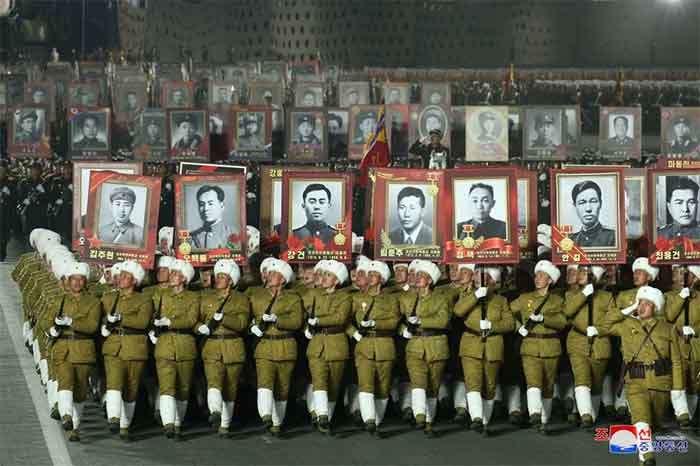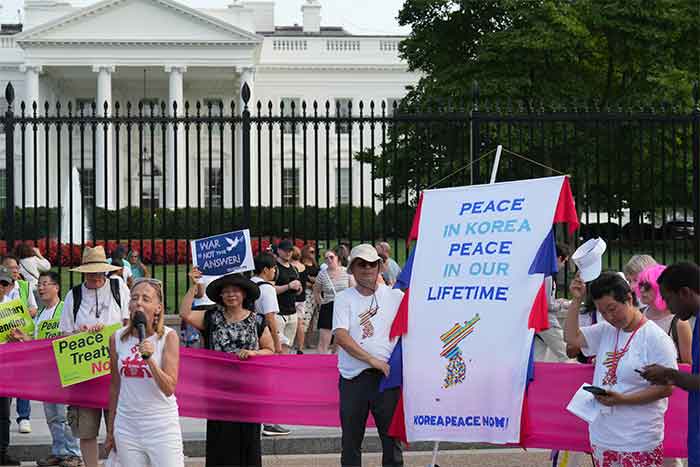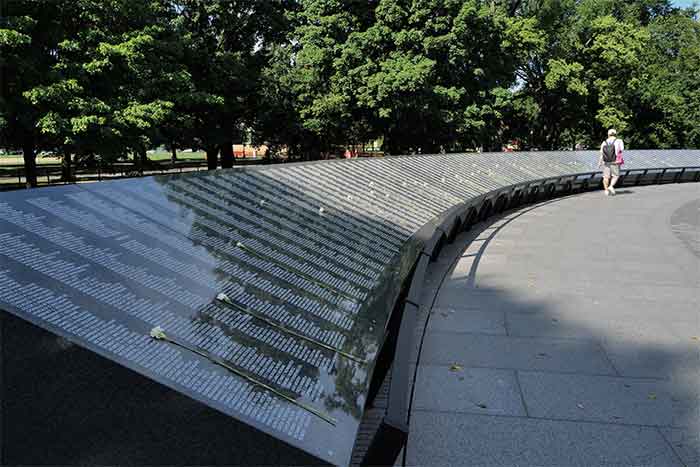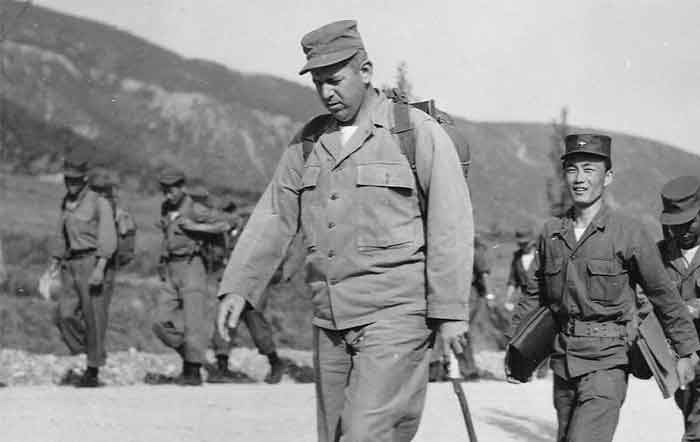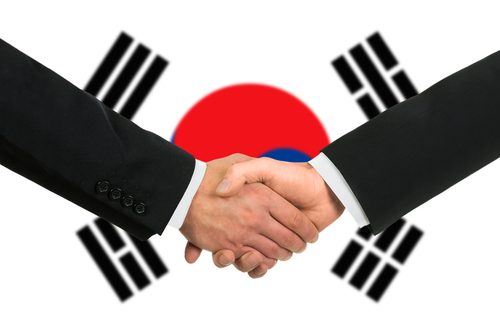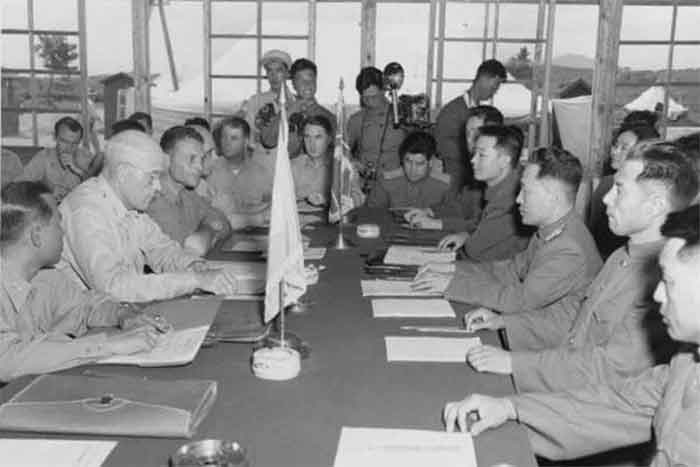
On 27 July the 70th anniversary of the Korean War Armistice is being observed at a time of increasing tensions. As a recent note of ICAN (International Coalition to Abolish Nuclear Weapons) updated till July 18 has stated, “Nuclear tensions on the Korean peninsula have continued to build through 2023. Last month, North Korea tested its most advanced solid-fueled ICBM which gives it the capability to strike the USA at short notice and in a show of force in the past day, a US nuclear armed submarine has visited South Korea for the first time since the 1980s. The United Nations Security Council met on 13 July to discuss North Korea’s continued development of its missile program.” This raises the important question of for how long the Korean peninsula will remain a flashpoint for international conflict and tensions?
There are people who have lived together peacefully for centuries but then some historical circumstances create such a divide that it not only causes immense loss of life and other distress; in addition this also results in the people getting divided for a very long time, for generations. In such cases merely negotiations and talks, although much needed, cannot bring peace on their own. There must be a continuing, strong, committed peace movement trying all the time to spread the message of justice-based peace and unity at all levels.
The prolonged conflict situation between between South Korea (SK or Republic of Korea, population 52 million) and North Korea (NK or Democratic People’s Republic of Korea, population 26 million) should be seen in this wider context.
For centuries people of NK and SK lived together independently. Then years of growing Japanese influence led in the early 20th century (1910) to annexation of Korea by Japan. This lasted till the Second World War when the Japanese defeat led to the end of this annexation. Meanwhile USA and Soviet Union forces had entered southern and northern parts of Korea and this ultimately led to a division of the country instead of the country emerging as a united free country. Soon war broke out with a UN force consisting of soldiers pre-eminently from the USA but also from some other countries coming to the rescue of SK facing an attack from NK. Just when the SK and UN sides were gaining ascendance, Chinese forces crossed the border to join the war on NK side, temporarily increasing NK strength. However the highly superior air force of the USA ultimately devastated NK in incredibly destructive ways, with many settlements being wiped out entirely. This war fought over 1950-53 claimed nearly 3 million human lives on both sides (including a very large number of civilians and some massacres) and ended with an armistice (agreement to stop fighting ) while a peace treaty has not been signed till now. Even the armistice was not signed by South Korea. It was signed by the UN force, North Korea and China.
This brings out the precarious nature of the peace established here, which was confirmed by the all-too-frequent violations and outbreaks of new tensions and incidents of violence over the years. There was some new hope at the time of talks in 2017-18 and a joint declaration. However these hopes were not fulfilled over a longer term and tensions have since returned to the region, confirming that talks without continuing peace processes and campaigns involving people cannot achieve much on their own in such difficult conditions.
Meanwhile, due to two factors the possibilities of this region becoming the flashpoint of a wider conflict and war have increased. Firstly, there is the acquisition of nuclear weapons by North Korea. Secondly, there is the growing hostility between the USA and China and the much talked about possibility of the USA initiating a war against China at some stage. The USA has all along retained a strong military presence in South Korea, and its other likely military allies in the region include Japan, Taiwan, Australia, New Zealand, the Philippines and Thailand. Some or all of these allies may not completely join a war against China, given the high costs, but may help the USA to a lesser or greater extent in various ways in its war efforts.
From the point of view of the Korean region, which had suffered such devastating war related ruin in the early 1950s, what is really important is for the people to avoid getting caught again in big power rivalries. They should resolve their mutual differences and agree on sustained peace in such a way that if and when the region gets more tense due to big power rivalries, they can still retain their peace, avoid getting used by big powers against each other and thereby protect the people from the devastations of war.
There can be two paths of peace ahead for SK and NK. Firstly, they can decide on unification by becoming one country, thereby getting back to centuries of history of living together. Secondly, they can agree on peaceful co-existence, cementing this further by a peace treaty. Both paths have their merits, and the Korean people must soon select one of these so that they can walk on it rapidly to achieve durable peace and maintain this even in the face of provocations caused by big powers.
To facilitate the path of peace a people’s peace movement has a very important role on both sides of the dividing line. People should come forward in increasing numbers peacefully and with determination to assert that there should be peace among all Korean people. There should be continuing activities of such peace movements at various levels in communities, using symbols which are powerful and influential in local cultures. All peace loving people in various parts of the world should come forward to support these peace efforts.
If the decision of the Korean people is in favor of unification, them this also should get widespread support of peace loving people worldwide so that big powers have less chance to obstruct such unification. Once unified, the united Koran nation should preferably become a neutral country and a non-aligned country to avoid the re-emergence of big-power rivalry as a problem for the new country. However these issues are for a later date. Just now the maximum effort is needed for ensuring peace and trust between the people of NK and SK. The paths of peace may involve some difficulties in the short-term but from a longer term perspective this would surely be a win-win situation for all Korean people.
Bharat Dogra is Honorary Convener, Campaign to Save Earth Now. His recent books include Planet in Peril, Protecting Earth for Children, Earth without Borders and A day in 2071.

